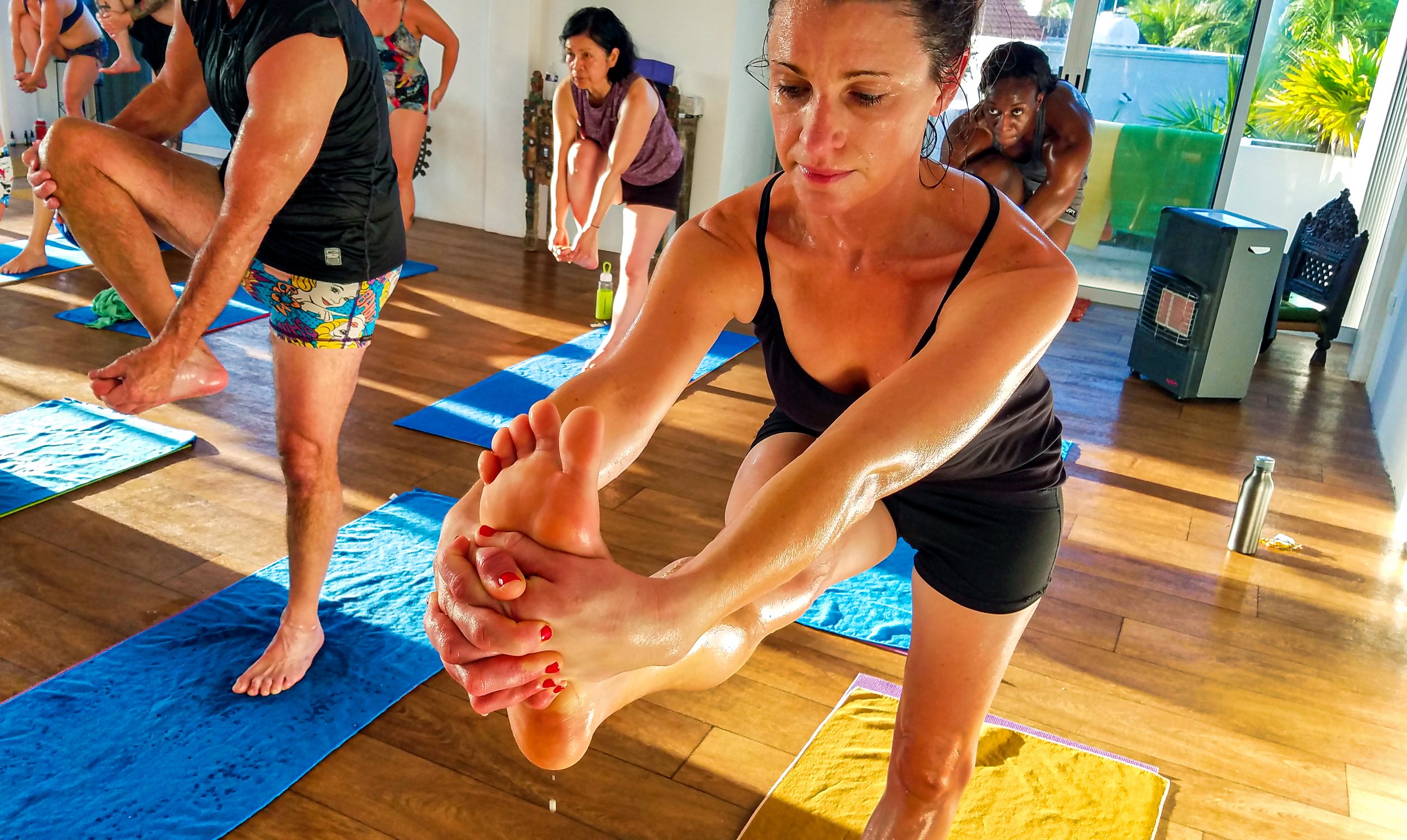The Art of Sweating - Part 2: The Benefits of Sweating
In this three part series we will discuss the art of sweating:
Part 1: Hydration
Part 2: The Benefits of Sweating
Part 3: Replenishment
There are many benefits sweating has for the body.
Part 2: The Benefits of Sweating
Most sweat is caused by heat, exercise, or stress. In Hot Yoga sweating is an important part of the practice, but what is sweat and how does it benefit the body?
Our skin contains two types of sweat glands; eccrine and apocrine. Of the 2-4 million sweat glands on our skin, most of these are eccrine glands. Eccrine glands open to the surface of the skin and produce clear sweat most often from increased body temperature. Apocrine glands are the other type of sweat glands in the skin and are found in areas such as the armpits, scalp, and groin. These glands are involved in emotional perspiration and produce opaque, oily sweat.
Sweat by itself is odorless but odor can occur due to bacterial decomposition in contact with sweat from the apocrine glands. Sweat is composed mostly of water but also contains electrolytes (sodium, potassium, chloride, calcium, and magnesium), lactic acid, and small traces of toxins such as urea. What you eat and drink can affect the chemical composition of your sweat.
Your age, sex, and weight can all affect not only how you sweat, but how much you sweat. For example, women have more sweat glands than men, but men are more efficient at sweating and their glands produce more sweat. This is why knowing your body, its hydration needs, how it sweats, and how you need to replenish is an important part to practicing Hot Yoga.
Hot Yoga provides a number of benefits and some of those can be found in sweating:
Regulates body temperature - Your body learns to regulate its temperature and how to sweat more efficiently. Sweat evaporating from the skin cools the body.
Fights germs - Sweat contains the protein Dermcidin which contains antimicrobial peptides that help fight infections and germs.
Helps heal wounds - Eccrine glands store adult stem cells which take immediate action in healing wounds on the skin.
Increases Mood - When we sweat, endorphins are released which increases mood and lowers stress hormones.
Protects kidneys - Sweat helps to limit the buildup of salt and calcium in the kidneys and urine, which can reduce the potential of kidney stones.
Reduces recovery time - Sweat helps to increase blood flow to skeletal muscles which can assist in recovery after exercise, illness, or muscle strain.
The benefits of sweating are a function of the body that are a natural part of Hot Yoga.
Remember to take caution when performing physical activities or exercise. Diabetes, hypertension, and obesity can compromise body temperature regulation. A high percentage of people have one of those conditions, so care should be taken and, as always, consult with your doctor before beginning any new physical activity.

